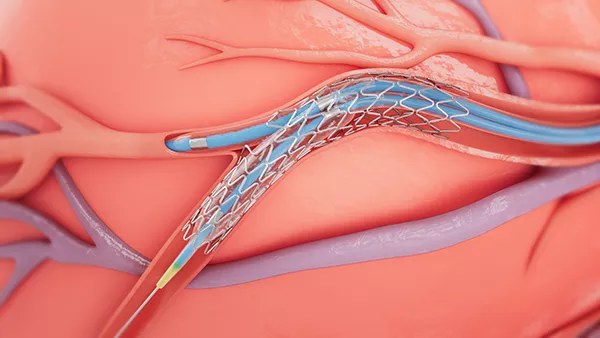Regulatory Roundup: FDA clears AI model for RV/LV ratios, approves calcium-blocking TAVR valve and much more
The U.S. Food and Drug Administration (FDA) has stayed busy these past few weeks, clearing multiple structural heart devices, overseeing a significant recall and approving a new contrast agent for MRI exams. FDA Commissioner Robert Califf, MD, even made headlines, delivering a passionate speech about innovation and misinformation at TCT 2022 in Boston.
That’s just the tip of the iceberg, however. Here is a review of some of the biggest FDA-related stories to hit the cardiology since the last Regulatory Roundup was published August 24:
1. FDA clears new AI algorithm for RV/LV ratio from Viz.ai
Viz.ai announced that its new advanced artificial intelligence (AI) algorithm for measuring RV/LV ratios has gained FDA clearance. The algorithm measures the diameters of a patient’s right ventricle and left ventricle, alerting users when it identifies a potential case of right ventricle dilation.
The newly-cleared algorithm is now part of the company’s Viz PE solution, which uses AI-based alerts to help clinicians identify early signs of pulmonary embolism.
“With AI-powered enhanced image interpretation that dramatically improves the quality and speed of mobile image viewing—and caregiver communication—Viz PE already helps identify suspected pulmonary embolisms in under two minutes,” Jayme Strauss, Viz.ai chief clinical officer, said in a statement. “The addition of the RV/LV algorithm is expected to further aid care teams to quickly make the right clinical decision for their patients, improving outcomes and saving lives.”
2. FDA approves a new calcium-blocking TAVR valve from Edwards Lifesciences
Edwards Lifesciences announced that its new Sapien 3 Ultra Resilia transcatheter aortic valve replacement (TAVR) valve, which combines the company’s Resilia tissue technology with its Sapien 3 Ultra TAVR device, was approved by the FDA. This updated tissue, expected to be a key building block of the next generation of Edwards valves, was designed to reduce the risk of reintervention among TAVR patients.
“The Resilia tissue's anti-calcification technology addresses one of the primary causes of reintervention following heart valve replacement,” Larry Wood, Edwards’ corporate vice president of TAVR, said in a statement. “The Sapien 3 Ultra Resilia valve is a prime example of Edwards' continued focus on innovating to meet the current and future needs of patients to help them live longer, healthier and more productive lives.”
Edwards also announced it is officially launching the new-look TAVR valve. It is expected to be available in the United States in a limited capacity soon.
3. FDA approves new RCT focused on Abiomed’s Impella heart pump
Abiomed announced the FDA has approved a new randomized controlled trial (RCT) focused on the use of its Impella heart pumps among acute myocardial infarction (AMI) cardiogenic shock patients. The RECOVER IV RCT will randomize patients to either undergo percutaneous coronary intervention (PCI) with Impella support prior to the procedure or without Impella support. The primary endpoint will be all-cause mortality after 30 days, and secondary endpoints will include major adverse cardiovascular events after 30 days, LV function recovery and more.
“This landmark trial will be the culmination of over 20 years of research in the interventional therapy of AMI and will apply all the clinical advancements we have made to improve survival and heart recovery for AMI patients with cardiogenic shock as demonstrated in multiple prospective studies,” William O’Neil, MD, RECOVER IV national co-principal investigator and medical director of the center for structural heart disease at Henry Ford Health, said in a statement.
4. FDA approves a new indication for Medtronic’s Onyx Frontier drug-eluting stent
Medtronic announced that the treatment of non-left main bifurcation lesions using the Onyx Frontier drug-eluting stent (DES) has been approved by the FDA. According to Medtronic, this newest approval will help the company develop new training resources for interventional cardiologist who perform PCI in patients with bifurcation lesions.
“As the first and only medical device company to offer this indication to U.S. interventional cardiologists, Medtronic remains committed to investing in DES technology, clinical evidence and physician education,” Jason Weidman, senior vice president and president of Medtronic’s coronary and renal denervation business, said in a statement. “We are looking forward to helping even more physicians access the tools they need to give their patients best-in-class care.”


